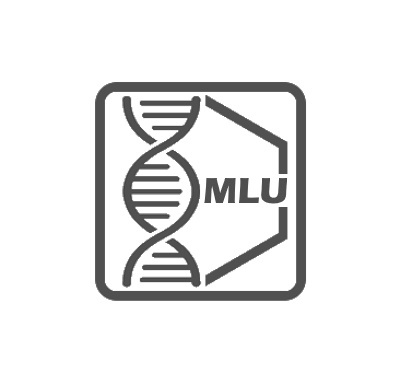LSP Projekt 1-1
Immobilisierung von Biokatalysatoren zur Herstellung von Antikörper-Derivaten für industrielle Anwendungen
Antikörper-Derivate haben sich zu einem wichtigen Hilfsmittel in der Behandlung insbesondere von Krebserkrankungen entwickelt. Dennoch sind effiziente Herstellungsmethoden für die kosten-günstige Produktion stabiler und funktioneller Antikörper-Derivate im industriellen Maßstab noch immer rar. Derzeit werden alle klinisch verwendeten Therapeutika dieser Art auf klassisch chemischem Wege erzeugt. Beeinträchtigungen der Funktionalität und Stabilität aber auch negative Auswirkungen auf die Herstellungskosten sind die Folge. Mit Hilfe eines selbstentwickelten enzymbasierten Ansatzes soll die Produktion nicht nur deutlich ökonomischer sondern auch in Bezug auf die Wirksamkeit und Qualität der antikörperbasierten Therapeutika verbessert werden. Die Bereitstellung eines effizienten Immobilisierungssystems ist dabei entscheidend für die Wirtschaftlichkeit der gesamten Produktionstechnologie. Die Syntheseausbeute soll hierbei mindestens vergleichbar, idealerweise sogar höher als unter analogen Bedingungen unter Verwendung des löslichen Enzyms sein. Literaturbekannt und in industrieller Anwendung sind bislang lediglich einfachere Hydrolysereaktionen (Ein-Substrat-Reaktionen) oder Acyltransferreaktionen zwischen ausschließlich kleinen Molekülen, die basierend auf der Verwendung immobilisierter Enzyme durchgeführt werden. Der im aktuellen Projekt zu entwickelnde Immobilisierungsansatz wäre in der Folge der erste, der eine Herstellung selektiv modifizierter Antikörper basierend auf der Verwendung immobilisierter Biokatalysatoren ermöglicht. Dem ersten Projektteil soll sich, aufbauend auf den erhaltenen Ergebnissen, eine Pilotphase anschließen, in der der initiale Labormaßstab auf Industrie-relevante Produktquantitäten zu skalieren ist. Hier ist sowohl die Immobilisierung selbst im entsprechenden Maßstab durchzuführen als auch die Synthesereaktion an die Erfordernisse des größeren Maßstabs hinsichtlich Massentransfer, Temperatur, Durchmischung etc. anzupassen.
Mitarbeiter/-innen

Prof. Dr. Frank Bordusa, Projektleiter
frank.bordusa@biochemtech.uni-halle.de
Tel: 0345 55 24800/ -01
Kooperierende Firmen

IDT Biologika

BTI BioPharma





